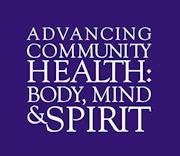May 26, 2008
CHANGING LIFESTYLES
Tackling hunger and poor health
Houston Food Bank, Baylor College of Medicine will deliver fresh goods and medical care
By LYNN COOK
Copyright 2008 Houston Chronicle
Hunger often goes hand-in-hand with poor health.
That is why the Houston Food Bank is teaming up with Baylor College of Medicine and St. Luke's Episcopal Health Charities to deliver medical care along with nutritional foods to low-income neighborhoods in and around Houston.
Using a $100,000 grant from health insurer Humana as seed money, the Houston Food Bank is launching a mobile pantry that will take fresh fruits and vegetables and frozen meat to almost 400 community centers, churches and other distribution partners across a 12-county area.
Pattie Dale Tye, market president for Humana of Houston, says she was impressed by the food bank's ability to meet families in need on multiple levels.
"Nutrition is the first component to maintaining a healthy lifestyle. The Mobile Pantry program's free health services provided in partnership with local hospitals are key to prevention and early detection," she said. "Both of these elements will not only add quality of life to our community's citizens, but could ultimately lower the cost of health care in Houston."
The mobile pantry — a large specialized truck with three refrigeration and freezer zones — is on order. It won't arrive until later this summer. In the meantime, Houston Food Bank Chief Executive Brian Greene said his staff has been experimenting for three weeks with "fast-food" drops from a tractor-trailer.
The goal - push fresh produce and meat into poor communities alongside the canned goods and other nonperishable groceries that are a staple of food banks.
"Fresh food is key to better nutrition and health," he said.
The special setup should give the food bank more flexible logistics, allowing it to move, store and distribute a more balanced menu to those in need.
Around the U.S., the number of people calling on food banks in the past six months has skyrocketed alongside the rising price of groceries.
Need up; donations down
According to America's Second Harvest, a network of more than 200 food banks around the U.S., food bank client rosters are up 20 percent, while donations to food banks have dropped 9 percent.
Food prices are expected to jump about 5 percent in 2008, according to the U.S. Department of Agriculture. This comes after several years of rising prices because of high energy costs, the weak dollar and increasing global demand for American agricultural exports.
Last year the Houston Food Bank distributed 35 million pounds of food.
A decade from now, Greene hopes to distribute 120 million pounds annually.
He expects most of those extra deliveries to come from fresh and frozen groceries as wholesalers and retailers, including Wal-Mart, try to donate old food before it spoils.
Ross Fraser, spokesman for America's Second Harvest, said Sam's Club and Wal-Mart are rolling out their "food rescue" program this summer, starting with leftover bakery and meat products.
"They're the nation's largest grocer. We estimate once that's up and running, we'll see 70 million pounds of food coming from it," he said.
Aside from more nutritious food, Greene sees the mobile pantry as a tactical way to get primary medical care to this same group.
"Our mission is to feed people, and that doesn't change. But we want them to have better access to healthier foods and better access to health care," he said.
Uninsured people sometimes turn to hospital emergency rooms for treatment of minor ailments and illnesses.
Fifty-two percent of emergency room visits by Harris County residents in 2006 were related to primary care, according to a University of Texas Health Science Center study of medical center data.
Other uninsured patients with chronic conditions, including diabetes and high blood pressure, do not get the ongoing care they need and land in emergency rooms when their untreated symptoms spiral out of control.
Hospitals absorb some of the costs of that charity care and often pass on the rest to insured patients.
Dr. Peggy Smith, a Baylor College of Medicine professor, is director of Baylor's seven teen health clinics, which actually serve patients up to age 23.
She envisions Baylor teams will sortie out with the mobile food pantry to conduct nutrition counseling; to screen for diabetes, high cholesterol and sexually transmitted diseases; and even to help patients navigate the labyrinthine health system.
"If their children are small, we can help enroll them in CHIP (the Medicaid program for children). We want to give people quality referrals to clinics in their own neighborhoods that are free or very low cost to them," Smith said. "Follow-through is key. You can't just give somebody a test result and leave."
Smith points to several studies that show medical issues are ignored when social issues are not addressed.
"If they're hungry, if the lights are cut off, if they don't have a place to sleep, they're less likely to get the medical help they need or even take the medicines that are given to them. When they're dealing with other stuff, those issues go down the drain," she said.
[email protected]
###
St. Luke's Episcopal Health Charities, the largest Houston charity devoted solely to healthcare, was created in 1997 as a separate component of St. Luke’s Episcopal Health System. St. Luke's Episcopal Health Charities melds together the healing ministry of the Episcopal Diocese of Texas and the healing mission of St. Luke’s Episcopal Health System to promote community health across the Episcopal Diocese. Since its inception, it has awarded more than 1200 grants totaling more than $70 million to nonprofit service organizations in the Houston area and 32 Texas counties, targeting disease prevention and health promotion among the underserved.


